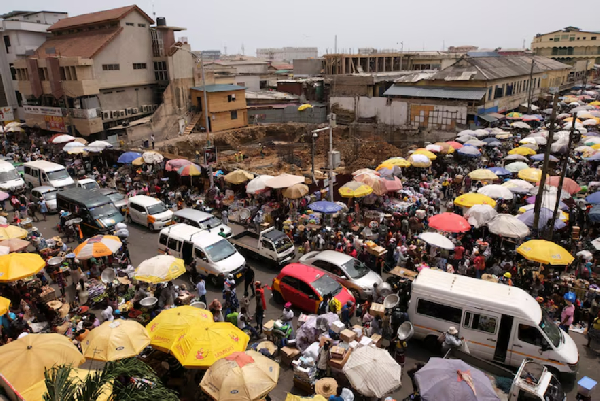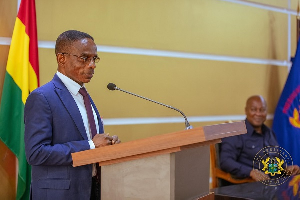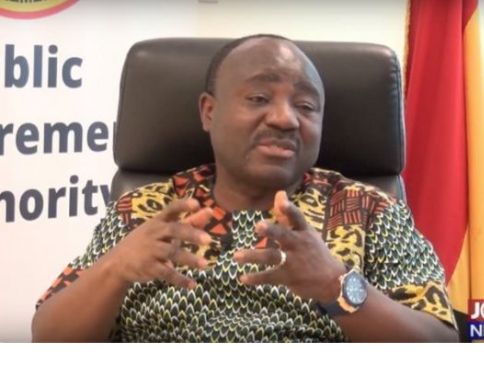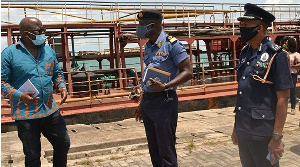US$3 billion lost to corruption annually

Ghana loses approximately US$3billion each year to corruption, depriving the nation of critical resources needed for development, according to President of the Ghana Anti-Corruption Coalition (GACC), Beauty Nartey.
Speaking at the launch of the Strengthening the rule of law and fight against corruption in Ghana project—an initiative by the German Development Agency (GIZ) in partnership with the European Union (EU)—Mrs. Nartey lamented that this staggering loss is double the country’s annual foreign direct investment (FDI) inflows, which stand at US$1.5 billion.
“What comes into our country as support is only about half of what we lose to corruption,” she said. “So, one may ask why we are not putting more effort into preventing the loss of such a staggering amount.
“We are more concerned about fighting corruption and freeing-up resources for development than simply focusing on aid inflows. As citizens we cannot continue paying lip-service to the fight against corruption, especially considering the recent freeze on aid from the United States.”
Mrs. Nartey lamented that corruption remains one of the biggest challenges to the country’s socio-economic development and poverty eradication.
She stressed the need for severe punishments to serve as effective deterrents and called for stronger collaboration between state institutions such as the Auditor-General’s Department, Economic and Organised Crime Office (EOCO), Attorney-General’s Department and Office of the Special Prosecutor (OSP) to ensure swift and decisive action.
A key legislative tool identified by the GACC for tackling corruption is the proposed Illicit Enrichment Law, which it is urging government to implement.
The project, launched in Accra, is part of the Participation, Accountability and Integrity for a Resilient Democracy (PAIReD) programme commissioned by the German Federal Ministry for Economic Cooperation and Development (BMZ) and implemented by GIZ Ghana in collaboration with Ghana’s Ministry of Finance.
It is co-funded by the EU and BMZ with a total budget of €12.7million.
Programme Director for PAIReD, Astrid Kohl, highlighted three key focus areas of the intervention: strengthening the capacity of public institutions in their fight against corruption (including the OSP, EOCO, and CHRAJ); empowering civil society organisations through capacity-building and funding; and enhancing digitalisation to improve collaboration among state actors.
“The intervention aims to increase transparency, enhance the effectiveness and sustainability of Ghana’s domestic revenue system and make expenditure management more citizen-oriented, data-based, gender-responsive and climate-conscious at both national and sub-national levels,” Ms. Kohl stated.
The launch brought together key stakeholders from government agencies with anti-corruption mandates, civil society organisations, media representatives, EU member states and members of the donor community.
CPI and public perception
Ghana’s performance on the Corruption Perception Index (CPI) has consistently remained below the average mark of 50, reflecting growing public dissatisfaction with governance and the state of accountability.
According to Mrs. Nartey, public perception continues to identify institutions such as the police, tax officials, parliament and even the presidency as among the most corrupt bodies in the country.
This perception, she noted, undermines public trust and weakens efforts to improve transparency.
Civil society organisations, which have been pivotal in anti-corruption efforts through public advocacy and contributions to policy formulation, are calling for more pragmatic measures to be implemented without delay.
Mrs. Nartey outlined a three-pronged approach to combatting corruption – resist, reject and report. She urged citizens to resist corrupt practices, reject offers that compromise integrity and report incidents of corruption to the relevant authorities, stressing that such civic responsibility is crucial to building a culture of accountability in the country.
Source: thebftonline.com





